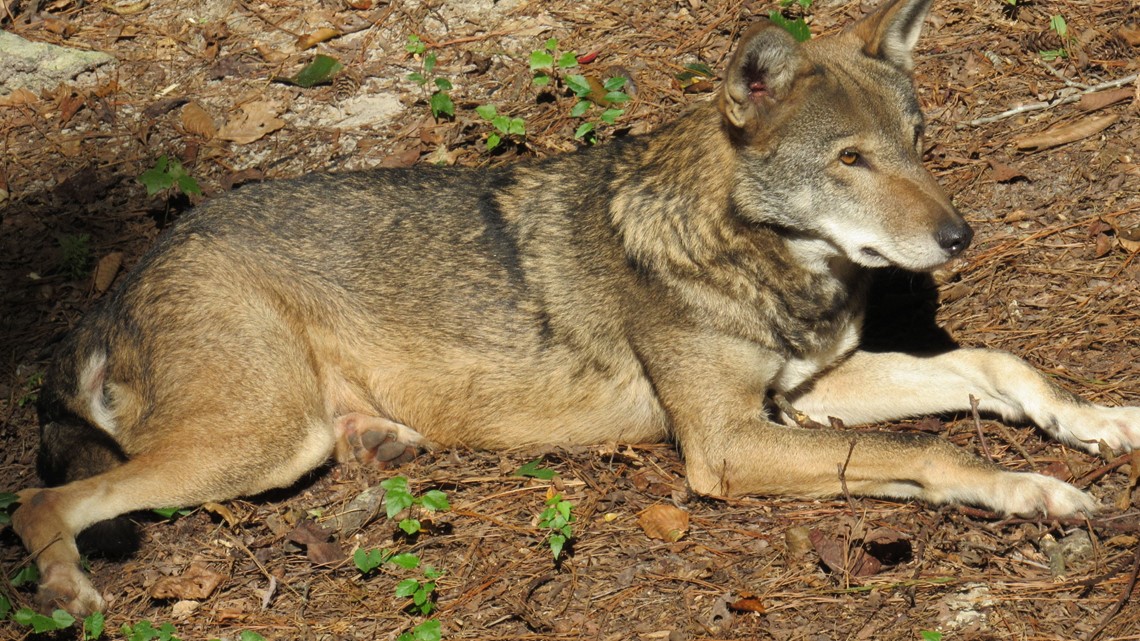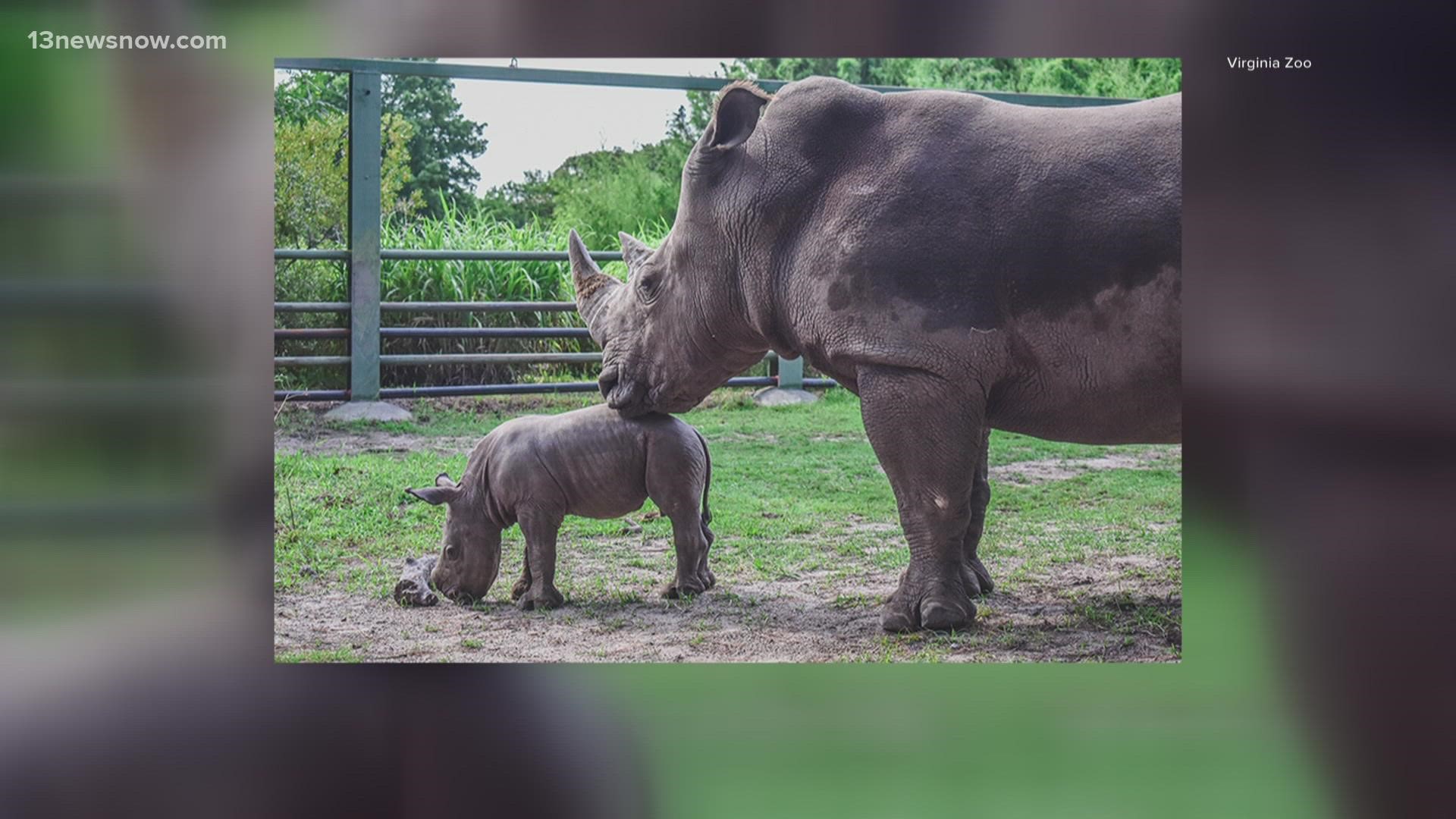NEWPORT NEWS, Va. — Author's note: The video above is on file from Aug. 5, 2021.
The Virginia Living Museum welcomed a red wolf, the most endangered mammal in the United States, to its family.
Last month, Hyde, a 9-year-old male red wolf (Canis rufus), was transferred to the Newport News museum from Wolf Haven International, a Washington sanctuary for captive-born and displaced wolves.
He was recommended by the federal Red Wolf Species Survival Plan (SSP) as a companion to the museum’s resident female red wolf, Katniss. As highly social pack animals, red wolves experience the highest levels of welfare when kept together in groups or packs.
According to the museum, Hyde was timid at first but quickly built confidence as he adjusted to the museum during his time of quarantine, integration to the new habitat and meeting his female counterpart.
“Together Hyde and Katniss act as important ambassadors for their species as they connect guests to native wildlife," said James Weinpress, the museum's senior director of animal welfare. "These mature canids represent the importance of peaceful coexistence.”


In colonial times, red wolves ranged throughout the Southeast. According to the museum, there are likely less than 20 red wolves remaining in the wild.
The U.S. Fish and Wildlife Service owns all red wolves in human care to help reintroduce and conserve the species in their historical range. As of 2021, the SSP-managed population consists of 245 wolves: 131 males and 114 females.
Hyde is located at the Boardwalk Trail section of the museum. His introduction comes just in time for Red Wolf Awareness Week, Oct. 17 to 23, to educate and share the plight and efforts to recover this species.
For more information about Hyde and other exhibits, you can visit the museum's website or call 757-595-1900.

